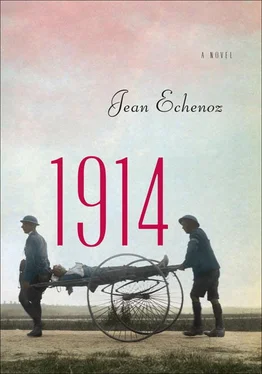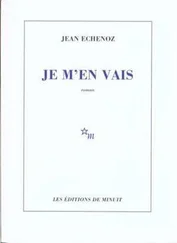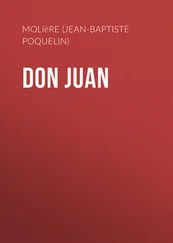Jean Echenoz
1914
A Novel
Translated from the French by Linda Coverdale
SINCE THE WEATHER WAS SO inviting and it was Saturday, a half day, which allowed him to leave work early, Anthime set out on his bicycle after lunch. His plans: to take advantage of the radiant August sun, enjoy some exercise in the fresh country air, and doubtless stretch out on the grass to read, for he’d strapped to his bicycle a book too bulky to fit in the wire basket. After coasting gently out of the city, he lazed easily along for about six flat miles until forced to stand up on his pedals while tackling a hill, sweating as he swayed from side to side. The hills of the Vendée in the Loire region of west-central France aren’t much, of course, and it was only a slight rise, but lofty enough to provide a rewarding view.
As Anthime reached the crest of that eminence, a rowdy gust of wind came up abruptly, almost carrying off his cap, and then buffeted his bicycle, a solid Euntes [1] Euntes: Some parish priests practiced trades to supplement their incomes, and Raphaël Vanni, the curate at Bourgneuf in the département of Charente-Maritime, produced a line of bicycles named after Matthew 28:19, euntes ergo docete omnes gentes : go ye therefore, and teach all nations.
he’d bought off a vicar now stricken with gout. Air currents that sudden, loud, and forceful in their onrush are rather unusual in that area in midsummer, especially on such a sunny day, and Anthime had to steady himself with one foot on the ground and the other on its pedal, with the bicycle slightly inclined beneath him, as he settled his cap firmly on his head in the whistling wind. Then he looked around at the countryside: a sprinkling of villages, an abundance of fields and pasturelands. Invisible yet also there, twelve or so miles to the west, breathed the ocean, on which Anthime happened to have ventured out some four or five times, occasions on which he had not been much help to his comrades, having no idea how to fish, although as an accountant, he had felt equipped to take on the always welcome responsibility of tallying up the mackerel, whiting, plaice, brill, and other flatfish back at the dock.
On that first day of August, standing alone on the hill, Anthime let his gaze linger over the panorama, taking in the five or six small market towns scattered below: clusters of low houses congregated around a belfry, linked by a slender network of roads on which the few automobiles were far outnumbered by oxcarts and draft horses hauling harvested grain. It was certainly a pleasant landscape, albeit one temporarily disrupted by that noisy, truly unseasonable eruption of wind rampaging everywhere within earshot, which forced Anthime to keep clutching his cap. The rushing air was all one could hear. It was four in the afternoon.
As Anthime glanced idly from one town to another, he noticed a phenomenon he’d never seen before. Atop every one of the belfries at the same moment, something had been set in motion, and this movement was tiny but steady: a black square and a white one, each following the other every two or three seconds, had begun regularly switching places like an alternating light, a binary blinking reminiscent of the automatic valves on certain machines back at the factory. Anthime watched but did not understand these mechanical pulses that seemed like trip levers, or winks launched from afar by a series of strangers.
Then, as abruptly as it had begun, the pervasive rumbling of the wind suddenly gave way to the noise it had masked until that moment: up in those church towers, the bells had in fact begun tolling all together, ringing out in a somber, heavy, and threatening disorder in which Anthime, although still too young to have attended many funerals, instinctively recognized the timbre of the tocsin, rung only rarely, the image of which had reached him separately before its sound.
The tocsin, given the world situation at the time, could mean only one thing: mobilization. Like everyone else but not taking the idea very seriously, Anthime had been rather expecting this, although he would never have imagined it happening on a Saturday. He listened quietly for less than a minute to the bells solemnly jostling one another, then straightened his bike and pushed off again, coasting all the way down the hill before turning toward home. Unnoticed by Anthime, his big book went sailing off the bicycle after a stiff bump, opening as it fell to lie forever alone at the roadside, facedown on the chapter entitled “Aures Habet et non Audiet.” [2] Aures Habet et non Audiet: Victor Hugo took the title of chapter 2 in book 4 of his last novel, Ninety-Three , from Psalms 115:6, aures habent et non audient: they have ears, but they hear not. The novel appeared in 1874, soon after the bloody uprising of the Paris Commune, and deals with the equally ferocious Royalist rebellions that began in the Vendée region in 1793, midway through the French Revolution, and spread through twelve of the freshly created western départements of France. When Anthime goes off to war on a troop train to the Ardennes in 1914 , he leaves from Nantes, which was the scene of major military engagements during the rebellion and such horrific Royalist reprisals against the populace that French universities today still debate the issue of un génocide vendéen . The excesses of the Terror are well known, but the appalling butchery of these revolts against the Revolutionary government still inspires revulsion and is the backdrop, perhaps most famously, of Balzac’s Les Chouans and Poulenc’s Dialogues des carmélites . In his description of the alarm bells, Echenoz is making a clear allusion to a similar incident in Ninety-Three , the opening of the aforementioned chapter when the Marquis de Lantenac, a Royalist leader who has survived an attack at sea by Republican ships, is cast up on the coast of Brittany. There he experiences the same phenomenon: seeing the belfries of the villages spread out before him flashing white and black, white and black, he realizes that the wind is drowning out their sound. And recognizing the tocsin, he wonders for whom the alarm bells toll.
Entering the town, Anthime began to see people leaving their houses to gather in groups before converging on the Place Royale. The men seemed excited, on edge in the heat, turning to call to one another, gesturing broadly but with seeming confidence. Anthime dropped off his bicycle at home before joining the general movement now flowing in from every direction toward the main square, where a smiling crowd milled around waving bottles and flags, gesticulating, dashing about, leaving barely enough space for the horse-drawn vehicles already arriving laden with passengers. Everyone appeared well pleased with the mobilization in a hubbub of feverish debates, hearty laughter, hymns, fanfares, and patriotic exclamations punctuated by the neighing of horses.
Across the square and beyond that animated throng red-faced with sweat and fervor, Anthime spotted Charles on the corner of the Rue Crébillon, by a silk merchant’s shop, and tried at a distance to catch his eye. Unsuccessful in this, he began making his way toward him through the crowd. Apparently remaining aloof from events, dressed as in his office at the factory in a close-fitting suit and a narrow, light-colored tie, Charles considered the crush of people without any visible emotion, wearing his Rêve Idéal camera from Girard & Boitte slung around his neck, as usual. Advancing toward him, Anthime had to steel and calm himself at the same time, a paradoxical yet necessary procedure he followed to master the intimidating uneasiness he felt in the presence of Charles, no matter what the occasion. The other man faced him for barely a second before looking down at the signet ring Anthime wore on his pinkie.
Читать дальше









